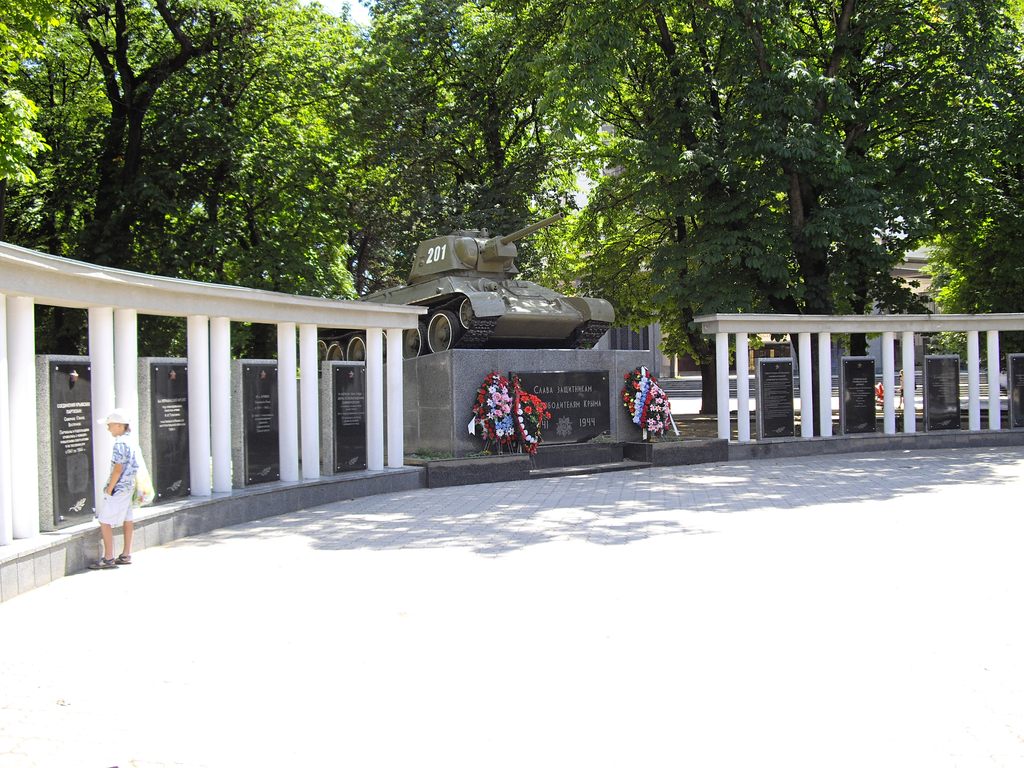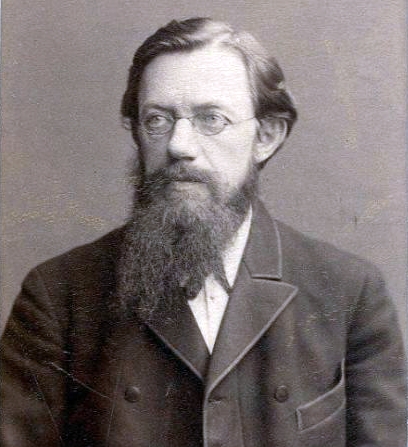|
Evgenii Wulff
Evgenii Vladimirovich Wulff ( Russian Евгений Владимирович Вульф) (1885–1941) was a Crimean Russian Soviet biologist, botanist and plant geographer. Wulff was born in Crimea and studied at Moscow University 1903-1906. He obtained his PhD in biology from the University of Vienna, Austria, in 1909. He then returned to Crimea and took up a position at the famous Nikitsky Botanical Garden near Yalta. He worked there 1914-1926, undertaking studies of the vegetation and flora of Crimea and founding the multi-volume ''Flora Taurica''. 1921-1926, he also was professor at the Tavrida University of Crimea. He then moved to the Vavilov All-Union Institute of Crop Plants in Leningrad to expand his scientific studies. He took a particular interest in the history of plant geography. He published a monograph on this topic in 1932, which was translated to English and published in the West posthumously. This book has been hailed as one of the twentieth century's key w ... [...More Info...] [...Related Items...] OR: [Wikipedia] [Google] [Baidu] |
Simferopol
Simferopol () is the second-largest city in the Crimea, Crimean Peninsula. The city, along with the rest of Crimea, is internationally recognised as part of Ukraine, and is considered the capital of the Autonomous Republic of Crimea. However, it is under the ''de facto'' control of Russia, which Annexation of Crimea by the Russian Federation, annexed Crimea in 2014 and regards Simferopol as the capital of the Republic of Crimea. Simferopol is an important political, economic and transport hub of the peninsula, and serves as the administrative centre of both Simferopol Municipality and the surrounding Simferopol District. After the 1784 Annexation of Crimea by the Russian Empire, annexation of the Crimean Khanate by the Russian Empire, the Russian empress decreed the foundation of the city with the name Simferopol on the location of the Crimean Tatars, Crimean Tatar town of Aqmescit ("White Mosque"). The population was Etymologies The name Simferopol ( uk, Сімферо́ ... [...More Info...] [...Related Items...] OR: [Wikipedia] [Google] [Baidu] |
Yalta
Yalta (: Я́лта) is a resort city on the south coast of the Crimean Peninsula surrounded by the Black Sea. It serves as the administrative center of Yalta Municipality, one of the regions within Crimea. Yalta, along with the rest of Crimea, is internationally recognised as part of Ukraine, and is considered part of the Autonomous Republic of Crimea. However, it is de facto occupied by Russia, which annexed Crimea in 2014 and regards the town as part of the Republic of Crimea. According to the most recent census, its population was . The city is located on the site of the ancient Greek colony of Yalita. It is said to have been founded by the Greek settlers who were looking for a safe shore (Γιαλός, ''yalos'' in Greek) on which to land. It is situated on a deep bay facing south towards the Black Sea, surrounded by the mountain range Ai-Petri. It has a warm humid subtropical climate and is surrounded by numerous vineyards and orchards. The area became famous when the c ... [...More Info...] [...Related Items...] OR: [Wikipedia] [Google] [Baidu] |
Russian Ecologists
This list of Russian Earth scientists includes the notable geographers, geologists, oceanographers, meteorologists, ecologists and other representatives of Earth sciences from the Russian Federation, the Soviet Union, the Russian Empire and other predecessor states of Russia. Alphabetical list __NOTOC__ A *Vladimir Abazarov, geologist, discoverer of Samotlor oil field, the largest Russian oil field *Dmitry Anuchin, anthropologist and geographer, coined the term "anthroposphere", determined the location of the Volga river source *Andrey Arkhangelsky, geologist B *Karl Baer, naturalist, formulated the geological Baer's law on river erosion, co-founder of the Russian Geographical Society *Valeri Barsukov, geologist *Vladimir Belousov, geologist *Lev Berg, determined the depth of Central Asian lakes, including Balkhash Lake and Issyk Kul, a head of the Soviet Geographical Society *Yuri Bilibin, geologist, studied placer geology and organized expeditions that discovered gold depo ... [...More Info...] [...Related Items...] OR: [Wikipedia] [Google] [Baidu] |
People From Simferopolsky Uyezd
A person ( : people) is a being that has certain capacities or attributes such as reason, morality, consciousness or self-consciousness, and being a part of a culturally established form of social relations such as kinship, ownership of property, or legal responsibility. The defining features of personhood and, consequently, what makes a person count as a person, differ widely among cultures and contexts. In addition to the question of personhood, of what makes a being count as a person to begin with, there are further questions about personal identity and self: both about what makes any particular person that particular person instead of another, and about what makes a person at one time the same person as they were or will be at another time despite any intervening changes. The plural form "people" is often used to refer to an entire nation or ethnic group (as in "a people"), and this was the original meaning of the word; it subsequently acquired its use as a plural form of per ... [...More Info...] [...Related Items...] OR: [Wikipedia] [Google] [Baidu] |
Scientists From Simferopol
A scientist is a person who conducts scientific research to advance knowledge in an area of the natural sciences. In classical antiquity, there was no real ancient analog of a modern scientist. Instead, philosophers engaged in the philosophical study of nature called natural philosophy, a precursor of natural science. Though Thales (circa 624-545 BC) was arguably the first scientist for describing how cosmic events may be seen as natural, not necessarily caused by gods,Frank N. Magill''The Ancient World: Dictionary of World Biography'', Volume 1 Routledge, 2003 it was not until the 19th century that the term ''scientist'' came into regular use after it was coined by the theologian, philosopher, and historian of science William Whewell in 1833. In modern times, many scientists have advanced degrees in an area of science and pursue careers in various sectors of the economy such as academia, industry, government, and nonprofit environments.'''' History The roles ... [...More Info...] [...Related Items...] OR: [Wikipedia] [Google] [Baidu] |
1941 Deaths
Events Below, the events of World War II have the "WWII" prefix. January * January–August – 10,072 men, women and children with mental and physical disabilities are asphyxiated with carbon monoxide in a gas chamber, at Hadamar Euthanasia Centre in Germany, in the first phase of mass killings under the Action T4 program here. * January 1 – Thailand's Prime Minister Plaek Phibunsongkhram decrees January 1 as the official start of the Thai solar calendar new year (thus the previous year that began April 1 had only 9 months). * January 3 – A decree (''Normalschrifterlass'') promulgated in Germany by Martin Bormann, on behalf of Adolf Hitler, requires replacement of blackletter typefaces by Antiqua. * January 4 – The short subject ''Elmer's Pet Rabbit'' is released, marking the second appearance of Bugs Bunny, and also the first to have his name on a title card. * January 5 – WWII: Battle of Bardia in Libya: Australian and British troops de ... [...More Info...] [...Related Items...] OR: [Wikipedia] [Google] [Baidu] |
1885 Births
Events January–March * January 3– 4 – Sino-French War – Battle of Núi Bop: French troops under General Oscar de Négrier defeat a numerically superior Qing Chinese force, in northern Vietnam. * January 4 – The first successful appendectomy is performed by Dr. William W. Grant, on Mary Gartside. * January 17 – Mahdist War in Sudan – Battle of Abu Klea: British troops defeat Mahdist forces. * January 20 – American inventor LaMarcus Adna Thompson patents a roller coaster. * January 24 – Irish rebels damage Westminster Hall and the Tower of London with dynamite. * January 26 – Mahdist War in Sudan: Troops loyal to Mahdi Muhammad Ahmad conquer Khartoum; British commander Charles George Gordon is killed. * February 5 – King Leopold II of Belgium establishes the Congo Free State, as a personal possession. * February 9 – The first Japanese arrive in Hawaii. * February 16 – Charles Dow publishes ... [...More Info...] [...Related Items...] OR: [Wikipedia] [Google] [Baidu] |
Vitaly Ivanovich Krechetovich
Vitali, Vitalii, Vitaly, Vitaliy and may refer to: People Given name * Vitaly Borker (born 1975 or 1976), Ukrainian American Internet fraudster and cyberbully * Vitaly Churkin (1952–2017), Russian politician * Vitaly Ginzburg (1916–2009), Russian physicist * Vitaly Grachev (born 1979), Ukrainian-Russian singer and songwriter * Vitaly Kaloyev (born 1956), Russian architect and convicted murderer * Vitaliy Khan (born 1985), Kazakh freestyle swimmer * Vitali Kiryushchenkov (born 1992), Belarusian ice hockey player * Vitali Klitschko (born 1971), Ukrainian professional boxer * Vitaliy Kolpakov (born 1972), Ukrainian athlete * Vitaliy Konovalov (1932–2013), Soviet engineer and politician * Vitali Konstantinov (born 1949), Russian wrestler * Vitaly Petrov (born 1938), Ukrainian athletics coach * Vitaly Petrov (born 1984), Russian racing driver * Vitaly Scherbo (born 1972), Belarusian and former Soviet gymnast * Vitali Sevastyanov (1935-2010), Soviet cosmonaut * Vitaly Solomi ... [...More Info...] [...Related Items...] OR: [Wikipedia] [Google] [Baidu] |
Chamaecytisus
''Chamaecytisus'' is a genus of flowering plants in the legume family, Fabaceae. It belongs to the subfamily Faboideae. It may be a synonym of ''Cytisus''. '' C. palmensis'' is a tree from the Canary Islands used as a fodder crop around the world. Species ''Chamaecytisus'' comprises the following species: * ''Chamaecytisus absinthioides'' (Janka) Kuzmanov ** var. ''absinthioides'' (Janka) Kuzmanov ** var. ''austriacoides'' (Stoj.) Kuzmanov ** var. ''grandiflorus'' (Stoj.) Kuzmanov ** var. ''heterophyllus'' (Bornm.) Micevski ** var. ''parvifolius'' (Stoj.) Kuzmanov ** var. ''pirinicus'' (Stoj.) Kuzmanov * ''Chamaecytisus albidus'' (DC.) Rothm. * '' Chamaecytisus albus'' (Hacq.) Rothm.—Portuguese broom, white broom * '' Chamaecytisus austriacus'' (L.) Link * ''Chamaecytisus blockianus'' (Pawl.) Klask. * ''Chamaecytisus borysthenicus'' (Gruner) Klask. * ''Chamaecytisus calcareus'' (Velen.) Kuzmanov * ''Chamaecytisus capitatus'' (Scop.) Link * ''Chamaecytisus cassius'' (Boiss. ... [...More Info...] [...Related Items...] OR: [Wikipedia] [Google] [Baidu] |
Fabaceae
The Fabaceae or Leguminosae,International Code of Nomenclature for algae, fungi, and plants. Article 18.5 states: "The following names, of long usage, are treated as validly published: ....Leguminosae (nom. alt.: Fabaceae; type: Faba Mill. Vicia L.; ... When the Papilionaceae are regarded as a family distinct from the remainder of the Leguminosae, the name Papilionaceae is conserved against Leguminosae." English pronunciations are as follows: , and . commonly known as the legume, pea, or bean family, are a large and agriculturally important of |
Siege Of Leningrad
The siege of Leningrad (russian: links=no, translit=Blokada Leningrada, Блокада Ленинграда; german: links=no, Leningrader Blockade; ) was a prolonged military blockade undertaken by the Axis powers against the Soviet city of Leningrad (present-day Saint Petersburg) on the Eastern Front of World War II. Germany's Army Group North advanced from the south, while the German-allied Finnish army invaded from the north and completed the ring around the city. The siege began on 8 September 1941, when the Wehrmacht severed the last road to the city. Although Soviet forces managed to open a narrow land corridor to the city on 18 January 1943, the Red Army did not lift the siege until 27 January 1944, 872 days after it began. The blockade became one of the longest and most destructive sieges in history, and it was possibly the costliest siege in history due to the number of casualties which were suffered throughout its duration. While not classed as a war crime at the ... [...More Info...] [...Related Items...] OR: [Wikipedia] [Google] [Baidu] |



_1938.jpg)




.jpg)